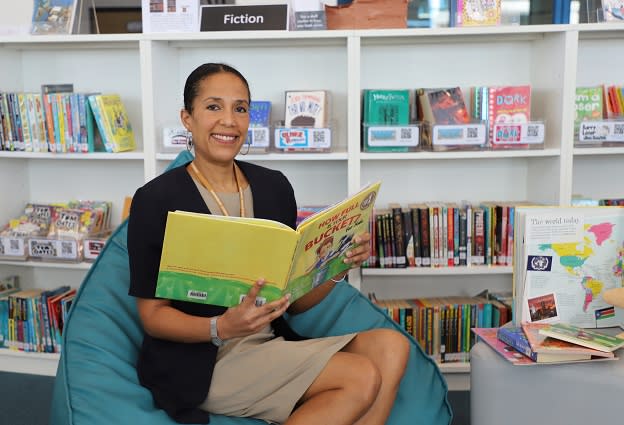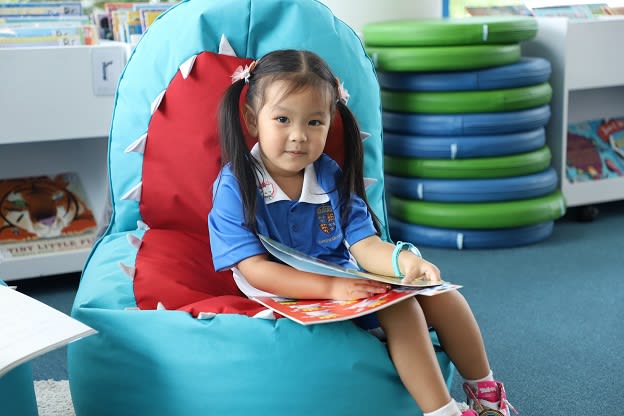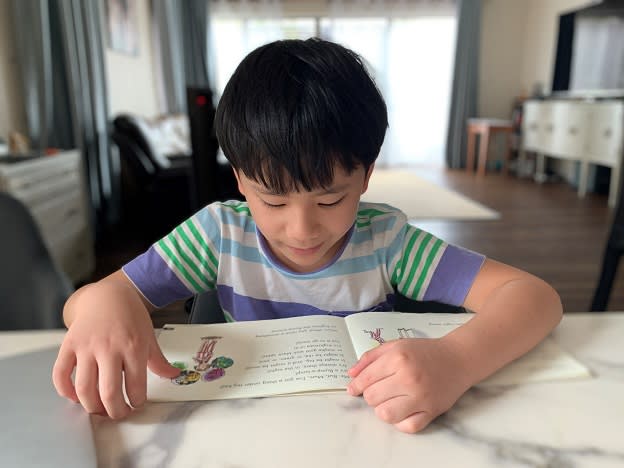NEWS
TRAVEL THE WORLD WITHOUT LEAVING YOUR SOFA

Ms Betts explains why reading is vitally important for learning and wellbeing.
Reading is a key to opening the door of exploration, empathy and learning. It doesn't happen automatically, it has to be nurtured.
When we engross ourselves in a book, we are mentally transporting ourselves to new worlds, new surroundings, new social situations and new ways of thinking. This is an extremely healthy habit for our minds, especially in times of social distancing, concern and uncertainty.
Of course, we know that reading is a huge support for children’s academic success, as well as their emotional wellbeing.

Did you know that young children who are exposed to reading at a young age, tend to become avid readers themselves? Did you know that avid readers tend to do well in all subjects across the curriculum?
Here are some reasons why we champion reading at City Campus:
Confident Speaking
Reading is vital if you want your child to learn a language. Through listening to adults, children develop critical language skills. They hear the correct pronunciation of sounds which ultimately results in an improvement in their own speech and articulation. As you read to your child they will come across words they have never heard before and are prompted to find out the meaning of these words, thus developing their vocabulary and improving their communication skills.
Beautiful Writing
When reading, children can see how the author composed their sentence structure and grammar. They can determine how the text should be read, using clues such as punctuation. Because reading helps improve children’s vocabulary, communication, analytical skills and grammar, it ultimately improves their writing skills and their ability to put their ideas on paper.
Emotional Intelligence
As children learn to read, they no longer have to rely on adults to read for them. Picking up a book by themselves lets children develop a sense of independence and self-confidence. Reading (both fictional and non-fictional) develops our emotional intelligence; helping us to become empathetic and compassionate towards others. When we read, we expose ourselves to ideas and realities that are different from our own. We learn about people, places and events outside of our own experiences. Reading opens our minds and enables us to get in touch with our emotions, which becomes important for our own wellbeing and our communication and support of others.

Safety
Through reading, children begin to understand the world around them on their own. Reading helps keep them safe. Being able to read enables children to understand the signs and notices around them and the purpose they serve. Traffic signs have words and so do warning labels. Reading allows children to understand when something says it could harm them.
High-Quality Entertainment
As children develop their love of reading, it becomes fun! They will find themselves laughing as the story unfolds. Reading enhances childrens’ imagination by forcing them to picture what the character actually looks like and who they are; they might even create their own . To understand a story, children need to remember different characters and details within a plot, which in turn goes towards boosting a child’s memory and develops their analytical thinking skills. Books have the added bonus of being a source of entertainment whilst avoiding screen time.
So what can we all do to get the very best out of the wonderful world of reading?

Top Tips
- Try to model reading for your children. If they see their parents engrossed in a book, they are much more likely to want to do it themselves.
- Make use of dress-up items and props at home to recreate story worlds and encourage children to use their imaginations to retell a story in their own words (even if it is different from the original book!)
- Get your children involved in having a sort-out of your books from home...you could even task your children with setting up their own home library.
- Use delivery services to arrange a book swap with your friends. Make sure any books you pass on are clean and in good condition.
- Arrange story-time video chats with family and friends, read stories together and encourage your children to read out loud or tell their stories too.
- Take part in Shrewsbury’s Family Reading Challenge. Download your free PDF here.
Once you learn to read, you will be forever free." Frederick Douglass, Social Reformer and Writer (1818-1895)
Follow us @SHBcitycampus on Facebook, Twitter and Instagram for daily news, photos and tips for home learning.



